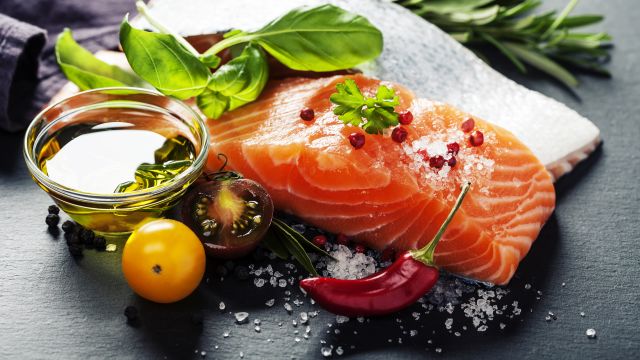Research shows that getting the omega-3s found in a 6-ounce serving of fatty fish like salmon could reduce the risk of heart failure by as much as 33 percent!
Heart helper
Hearts naturally lose some blood-pumping ability as a normal part of aging. But with heart failure, the decrease is made more severe—usually due to another health condition. Yet there's plenty you can do to keep your body healthy and avoid a weak heart. In a large study, men who ate fatty fish such as salmon or herring once a week had the lowest rates of heart failure. Regular exercise and a generally healthy diet are also good choices for your heart.
The good fat
Researchers think that the omega-3 fatty acids in fish are what help the heart by improving triglycerides, blood pressure, and heart rate. And it may not take much fish to get the effect. In fact, in the recent study, eating more than one serving of fish per week didn't seem to provide additional benefits.






